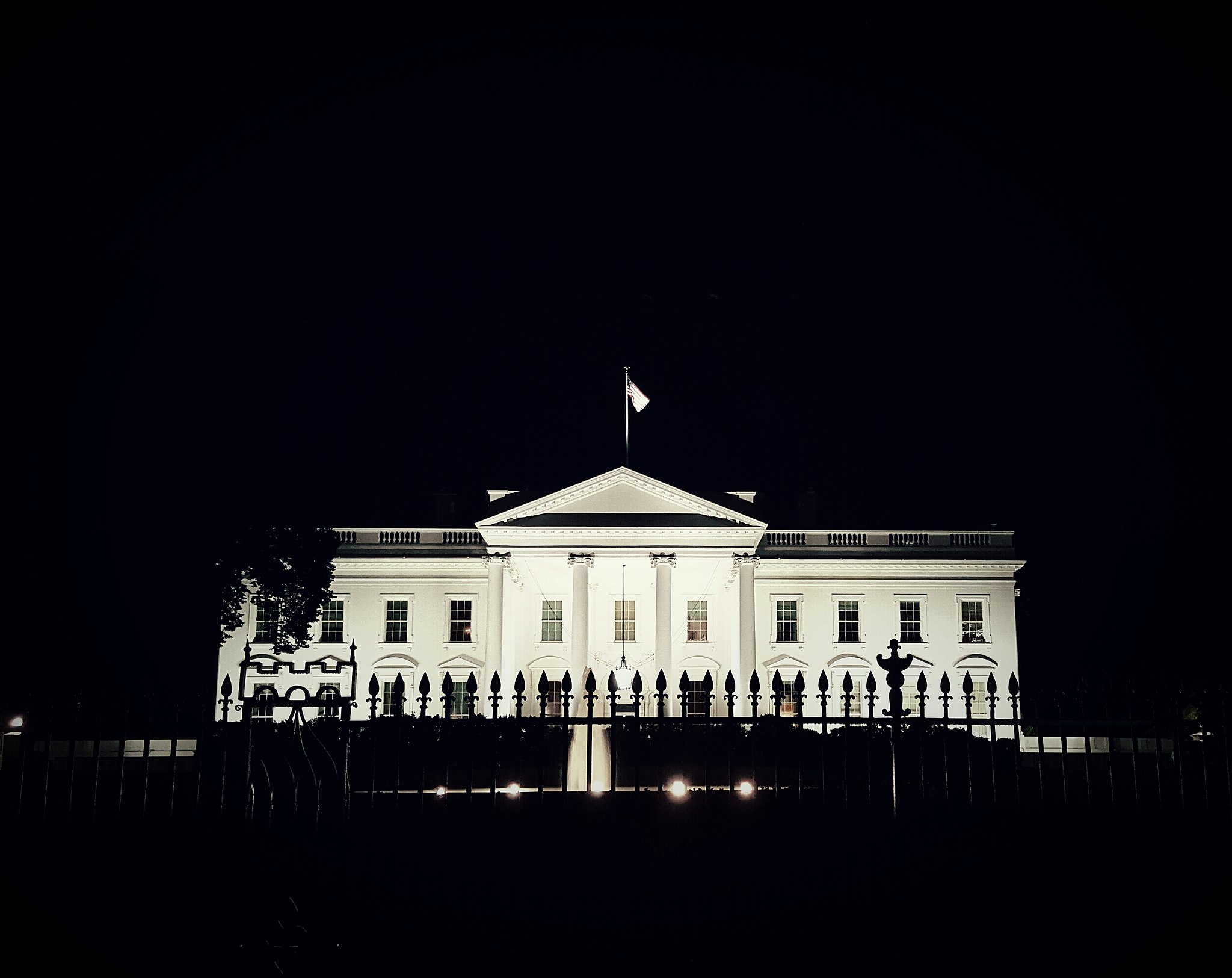Modernizing the Department of Homeland Security
How can a Biden administration best reorient the department to serve the nation’s safety?

Published by The Lawfare Institute
in Cooperation With

The Department of Homeland Security (DHS) has been at the center of any number of controversies under the Trump administration, leading to arguments over whether the department should be reorganized or even done away with altogether. Over the past six months, in fact, there have been increased calls for the dismantling of the department. But President-elect Biden’s selection of former Deputy Director of Homeland Security Alejandro Mayorkas as the next secretary suggests that the Biden administration will not seek to dismantle the department, but will likely instead shift its mission and priorities in a way that recalibrates the department’s interactions with the public.
This is a welcome development. With almost two decades behind it and new leadership in the Biden-Harris administration on the horizon, there is a fresh opportunity to conceive of a forward-looking Department of Homeland Security that best serves the nation’s safety.
The two of us have worked on national security, intelligence and law enforcement issues both before and after 9/11—and we do not think DHS is currently fulfilling its stated mission of “keeping America safe.” We acknowledge the department’s shortcomings and recognize the validity of some of the arguments made by those who would like to see it dismantled. But ultimately, we would like to see a future DHS that is retained as an institution but modernized. We agree with Bennie G. Thompson, chairman of the House Committee on Homeland Security, that DHS “does not need dismantling, it needs reforming.” Indeed, reforming the department may be the only outcome that is politically feasible at this time.
To achieve that objective, legislative and executive reform efforts can be approached under the umbrella of three themes. First, the department’s mission should be reoriented from primarily an enforcement approach to a protective approach providing value to the American people. Second, the institution itself should be reformed through new oversight and accountability structures and processes. And third, the department’s activities should be rebalanced to focus less on legacy issues and more on current and emerging threats.
As Biden’s nominee to lead the department, Mayorkas seems aware of the delicate position he will be in. At the transition team’s national security leadership rollout event, Mayorkas commented that “the Department of Homeland Security has a noble mission: to help keep us safe and to advance our proud history as a country of welcome”—recognizing the work that needs to be done to restore the department’s commitment to serving and protecting. The department’s activities and public messaging have focused heavily on law enforcement as its primary function, thanks to the Trump administration’s emphasis on immigration enforcement and border security as policy priorities. But the department was created to protect, not simply to enforce. The department must reorient itself toward a comprehensive mission of protecting the safety of Americans, as a matter of both policy priority and public relations.
The Biden-Harris administration could go further by explicitly charging DHS with prioritizing the safety issues that most directly threaten Americans today, such as the pandemic. Trump’s DHS has been conspicuously absent on the coronavirus response—though it could have played an important role in coordinating national stockpiles of personal protective equipment and health equipment during the initial phases of the pandemic. This coordination among federal, state and local authorities will be hugely important in the next phase of a vaccine rollout.
As one of us (Cordero) wrote in May, “Building public confidence in DHS activities, and enhancing controls within DHS that will improve public confidence, will bolster DHS effectiveness. For DHS to remain a viable entity, it must conduct its activities according to law and constitutional principles, and it must foster public confidence that it is doing so.” The Department of Homeland Security Reform Act of 2020 (H.R. 8791), which focuses on enhancing oversight and accountability and was introduced in November 2020 by Thompson, is a good start. With its focus on enhancing oversight and accountability, the bill adds an associate secretary to the leadership team, which will provide needed leadership capacity to oversee the department’s substantial law enforcement activities. Given the scope of the department’s activities, and the operational nature of them, this third secretary-level position will enhance management and oversight of the department. The legislation also enhances protections for privacy and civil liberties, and expands oversight of law enforcement and acquisitions functions. It includes targeted reforms intended to address particular problems in the department in the Trump era, such as the overreliance on acting officials, the inappropriate politicization of the department’s social media accounts and the lack of departmental coordination regarding protection of civil liberties.
The proposed legislation, however, does not yet tackle the overarching mission focus of the department. Refining DHS’s mission will be key to focusing the department’s capacity where it is most needed: ensuring the safety of Americans in ways that other federal agencies are ill equipped to do. Over its 18-year history, the department has demonstrated that it is capable of doing certain things well, including transportation security, special event security, and election cybersecurity management and coordination. The creation of the Cybersecurity Infrastructure and Security Agency and the agency’s coordination of election security activities over the past three years has been a bright spot for the department. The department also has the capacity and expertise to conduct emergency management well, although the performance of the Federal Emergency Management Agency across events has been variable across administrations. A modernized DHS could reorient itself to build on these strengths, by recalibrating its enforcement activities and prioritizing the department’s activities that protect Americans and ensure their safety.
In the immediate term, there will need to be a clean sweep of the department’s political leadership. But simply replacing departmental leadership through the often laborious process of nominations and confirmations—which can stretch throughout the first year of a new administration—will not be enough. Over the next several weeks, the incoming administration and the Senate should work together to vet proposed nominees and chart the course for new department leadership, so that the Senate can promptly vote on confirmations on the afternoon of Jan. 20 or shortly thereafter. Likewise, DHS nominations should be among the priorities for approval by Congress, which should treat nominations for the department as having equal importance as nominations for other national security positions. Given the monumental tasks facing the new secretary, he should have the benefit of an entire leadership team ready to go as soon as possible at the start of the administration.
Moreover, over time, the new administration should consider further professionalizing DHS by removing some of the political appointment slots and filling them with career officials. This could help remedy the partisan divide among Americans’ views of the department; according to the Pew Research Center, 86 percent of Republicans have a favorable view of the department, while just 60 percent of Democrats do.
Modernizing DHS to better serve the public and protect the country will also require streamlined congressional oversight. Thompson testified before the Rules Committee in October urging that oversight of the department be consolidated on his committee. This recommendation is not new—in fact, it is the last major recommendation by the 9/11 Commission that remains unimplemented.
Perhaps the most politically challenging task will be to develop consensus around whether and how immigration processing, adjudication and enforcement fits into the modernized DHS framework. Some observers have argued that immigration processing should be removed from the department. But though reforms are clearly needed, Congress is unlikely to legislatively remove immigration components from the department in the near term. Therefore, DHS’s immediate focus should be on reducing the outsized focus on immigration enforcement of the past four years and recalibrating the department’s activities according to modern priorities.
In addition, the new administration should make clear that DHS itself will adhere to its mission and not encroach on state and local law enforcement authorities and responsibilities in a manner that is inconsistent with privacy, civil liberties and the protection of First and Fourth Amendment rights. The deployment of department personnel to Portland, Oregon, in particular, raised serious questions about whether DHS officials were conducting law enforcement activities in violation of constitutional rights. To that end, Biden should, as a matter of executive branch policy, restrict the deployment of Border Patrol personnel into the interior of the country for non-border-security-related functions.
A major challenge facing the Biden administration will be leading a workforce, a significant part of which appeared to embrace the Trump agenda of exclusion and anti-immigrant sentiment. The Border Patrol Union, in particular, has contributed to the unfortunate politicization of that workforce—not just through its endorsements of Trump but also through its overtly political public messaging throughout the administration. The department’s missions do not require it to be adversarial to the people it serves. The next secretary of homeland security must work to change the department’s culture accordingly.
Finally, although DHS was born out of the horror of 9/11, it is no longer clear that counterterrorism and immigration enforcement need to be the department’s dominant missions in the future. Instead, Congress and the new administration should evaluate how to keep Americans safe and secure in a world where pandemics, climate change and cybersecurity pose threats to the country’s way of life on a scale that was once the primary domain of terrorism. This will require Congress and DHS to reexamine what the deadliest and most costly threats facing the nation today really are—and reprioritize the department’s activities accordingly.






